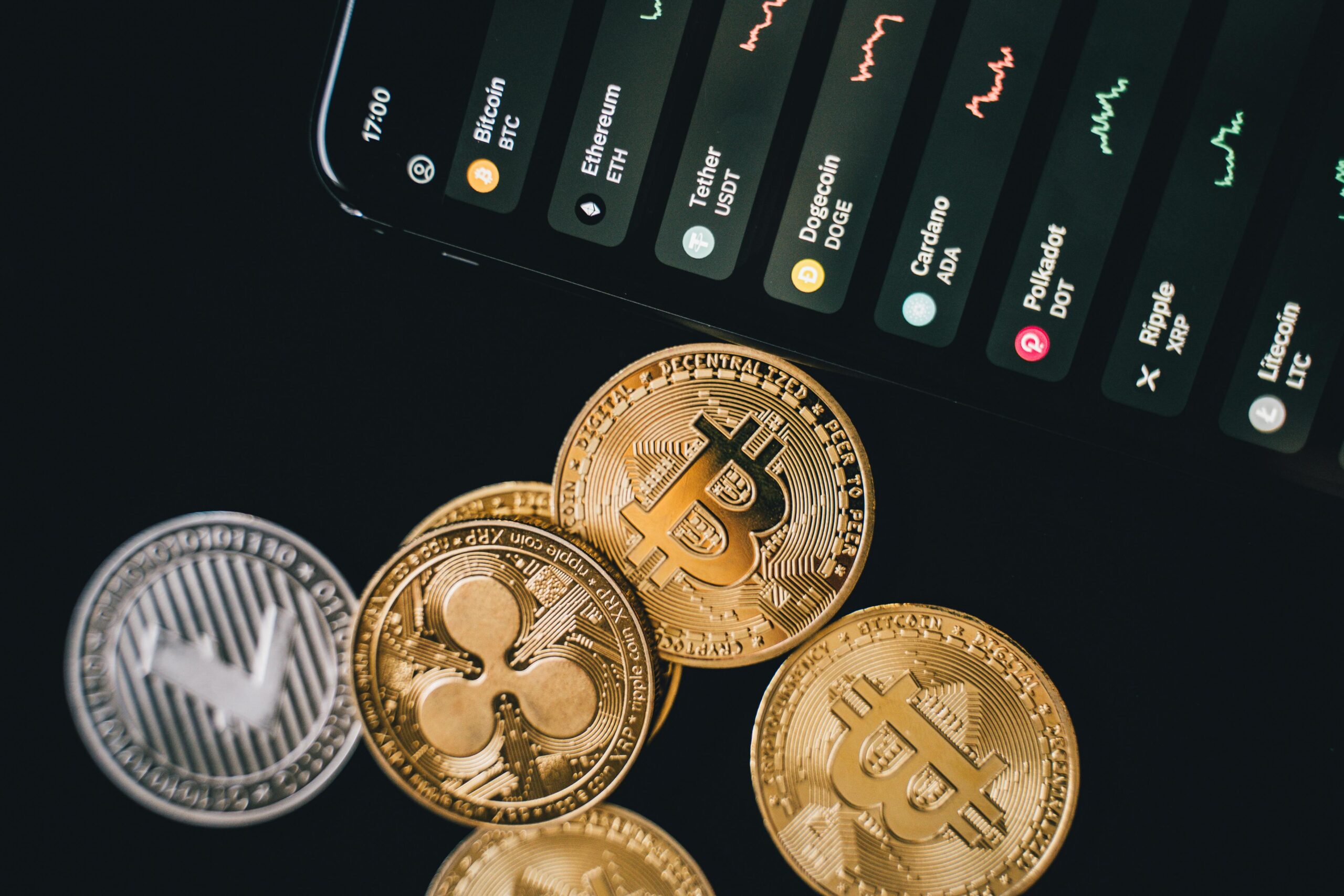Cryptocurrency tokenization is changing the finance sector and investment in ways that few could have predicted a decade ago. From the early days of Bitcoin as a digital experiment to today’s multi-trillion-dollar ecosystem, crypto is no longer just about speculation. The rise of artificial intelligence (AI) and the cryptocurrency tokenization of real-world assets are combining to reshape how investors trade, manage, and access financial opportunities. Together, these forces are not only increasing efficiency but also redefining inclusivity, transparency, and wealth creation.
Financial advisors emphasize that staying ahead of these trends requires both curiosity and discipline. As Ric Edelman, founder of the Digital Assets Council of Financial Professionals, explained in a recent interview with CNBC, “Investors who ignore digital assets are missing one of the most profound shifts in finance since the creation of the internet.” This article explores seven powerful ways in which AI and cryptocurrency tokenization are transforming investment and shaping the future of finance.
1. Smarter Trading with AI-Driven Crypto Agents
The volatility of cryptocurrency markets has often discouraged traditional investors. However, AI-driven trading agents are changing the game by using machine learning algorithms to analyze historical patterns, market sentiment, and real-time data. These AI systems can detect subtle signals that human traders might overlook, allowing for quicker and more informed decisions.
Platforms like Numerai and AI-integrated exchanges are leveraging collective intelligence and predictive modeling to create investment strategies that adapt in real time. For retail investors, this means access to sophisticated tools that once belonged only to hedge funds.
Finance counselor Sarah Foster of Fidelity Digital Assets notes that “AI will bring discipline to crypto investing by reducing emotional decisions and improving portfolio balance.” This blend of automation and insight illustrates how Cryptocurrency Tokenization is changing the finance sector and investment by making advanced trading strategies accessible to a wider audience.
2. Tokenization of Real-World Assets for Greater Access
One of the most revolutionary changes in crypto is real-world asset tokenization. Cryptocurrency tokenization converts physical assets, such as real estate, commodities, or even fine art, into digital tokens on a blockchain. Each token represents a fraction of the asset, allowing investors to buy, sell, or trade portions without needing full ownership.
For example, projects like RealT allow investors worldwide to purchase tokenized shares of rental properties. Similarly, companies are working on tokenizing gold, government bonds, and even luxury cars. By removing traditional barriers such as minimum investment thresholds and geographical restrictions, cryptocurrency tokenization democratizes access to markets that were once exclusive.
According to PwC’s 2023 Global Crypto Report, cryptocurrency tokenization has the potential to unlock trillions of dollars in previously illiquid assets. This demonstrates that Cryptocurrency Tokenization is changing the finance sector and investment by making wealth-building opportunities more inclusive.
3. Fractional Ownership Unlocking New Markets
Fractional ownership is a natural outcome of cryptocurrency tokenization, and it has far-reaching implications. Instead of needing hundreds of thousands of dollars to invest in a high-end property or fine art piece, an investor can now own a fraction of it through blockchain tokens.
This model has already disrupted industries like real estate and collectibles. For example, platforms are enabling fractional ownership of paintings by artists like Picasso or Banksy, allowing investors to hold a small stake in multimillion-dollar art. In real estate, cryptocurrency tokenization is lowering entry barriers for young investors who want exposure to property markets without committing to full mortgages.
Financial coach Michael Kitces explains that “fractional ownership through tokenization broadens financial inclusion, providing smaller investors with access to traditionally elite markets.” This structural change illustrates yet again how cryptocurrency tokenization is changing the finance sector and investment by leveling the playing field.
4. AI-Powered Risk Management and Fraud Detection
One of the biggest criticisms of the cryptocurrency industry has been its association with scams, fraud, and extreme volatility. Stories of hacked exchanges, rug pulls, and phishing attacks have made some investors hesitant to explore digital assets. Yet, as the industry matures, AI is stepping in as a game-changing safeguard that addresses many of these long-standing concerns.
Machine learning systems can now analyze massive volumes of transaction data across blockchains, learning to detect suspicious behavior that humans might miss. These systems flag unusual trading activity, identify wallet addresses linked to illicit activities, and provide real-time alerts to exchanges and regulators. Instead of reacting after losses occur, AI makes it possible to anticipate threats before they escalate, saving both investors and platforms from catastrophic damage.
Blockchain analytics companies such as Chainalysis and Elliptic have already integrated AI into their systems, enabling authorities to track illicit flows of funds and monitor high-risk wallets with unprecedented accuracy. This not only helps law enforcement but also creates safer trading environments for retail and institutional investors alike. By reducing the likelihood of fraud, AI fosters greater confidence in the stability and legitimacy of digital assets.
Finance counselor Catherine Coley underscored this point during a fintech panel when she said, “AI will become the backbone of security in crypto, helping the industry scale responsibly while protecting investors.” Her words capture the broader reality: without robust AI-driven safeguards, the growth of crypto could be undermined by mistrust and instability.
This convergence of AI and blockchain demonstrates how cryptocurrency tokenization is changing the finance sector and investment. By combining blockchain’s inherent transparency with AI-powered fraud detection, the financial industry is building a more secure and resilient digital ecosystem. Investors can engage with tokenized assets more confidently, knowing that advanced technologies are working in the background to protect their wealth.
5. Decentralized Finance Enhanced by AI
Decentralized finance (DeFi) has exploded in popularity, offering services such as lending, borrowing, and yield farming without intermediaries. But DeFi’s complexity has made it challenging for average investors to participate confidently.
This is where AI comes in. AI algorithms can optimize DeFi strategies, predict yield opportunities, and automate portfolio management. Instead of manually navigating dozens of protocols, investors can rely on AI agents to manage their exposure efficiently.
According to a World Economic Forum report, AI-augmented DeFi has the potential to reduce costs, improve transparency, and enhance risk-adjusted returns. This synergy shows how cryptocurrency tokenization is changing the finance sector and investment by bringing intelligence and automation to decentralized systems.
6. Improved Liquidity Through Tokenized Assets
Liquidity, or the ease with which assets can be bought or sold, is a persistent challenge in traditional finance. Tokenization directly addresses this problem by making assets divisible, tradable, and transferable on blockchain networks.
Take real estate as an example: selling a property can take months. But if that property is tokenized, investors can sell their fractional tokens in minutes on secondary markets. This provides flexibility, reduces holding risks, and allows capital to flow more freely.
Finance expert Anthony Pompliano, a well-known crypto investor, highlighted in his newsletter The Pomp Letter that “Liquidity created through tokenization will redefine how we think about asset ownership and transferability.” Clearly, cryptocurrency tokenization is changing the finance sector and investment by improving efficiency in traditionally illiquid markets.

7. Personalized Wealth Management with AI and Blockchain
Wealth management is becoming more personalized than ever thanks to the convergence of AI and blockchain. Traditional financial planning has often been a one-size-fits-all service, catering primarily to high-net-worth individuals. However, AI tools now allow investors at all levels to benefit from the kind of tailored insights that were once out of reach. By analyzing an investor’s financial history, spending patterns, goals, and risk tolerance, AI creates customized investment plans that evolve in real time as circumstances change.
When paired with blockchain’s transparency, this personalization gains a new dimension. Investors can track performance, fees, and asset allocation instantly, without waiting for quarterly reports or filtered updates. This real-time visibility builds trust and empowers individuals to take greater control over their wealth-building journey. Instead of opaque systems, blockchain ensures that every adjustment and allocation is visible, verifiable, and tamper-proof.
Robo-advisors, which already dominate parts of traditional investing, are now integrating cryptocurrency portfolios into their offerings. These AI-driven advisors do more than recommend traditional stocks and bonds—they rebalance crypto holdings, assess volatility, and even suggest tokenized assets such as real estate, art, or commodities as part of a diversified strategy. This opens opportunities for investors to spread risk across a wider range of asset classes that were previously inaccessible.
As Suze Orman, a personal finance expert, noted, “Technology will make wealth management not only more accessible but also more tailored to individual needs than ever before.” This insight highlights how AI and blockchain are democratizing financial planning. What was once a service reserved for the wealthy elite is now accessible to young professionals, small business owners, and retail investors across the globe.
This shift demonstrates how cryptocurrency tokenization is changing the finance sector and investment by empowering people with smarter, more inclusive financial planning tools. As AI becomes more advanced and cryptocurrency tokenization more widespread, personalized wealth management will likely become the standard rather than the exception. The result is a financial system that is not only more efficient but also more human-centered, built around the unique needs and aspirations of each investor.
Final Thoughts
Cryptocurrency and AI are not passing fads, they represent structural changes that are reshaping the very foundations of finance. What once seemed like experimental technology has now matured into systems with real-world impact, altering how capital flows, how assets are managed, and how investors interact with markets. The convergence of AI-driven trading, tokenization, fractional ownership, risk management, decentralized finance, liquidity improvements, and personalized wealth management shows that the digital revolution is not just about innovation, it is about transformation at every level of the financial ecosystem.
For both professionals and retail investors, the message is clear: staying informed and adaptable is no longer optional, it has become essential. The integration of AI and cryptocurrency tokenization demonstrates that it is changing the finance sector and investment in ways that make markets faster, more transparent, and more inclusive. These technologies reduce barriers to entry, empower smaller investors, and open opportunities that were once reserved for elite institutions. At the same time, they demand careful navigation, since volatility, regulatory uncertainty, and security concerns remain part of the landscape. The most effective strategies will balance boldness with prudence, embracing innovation while managing risks responsibly.
The future of finance is not just digital, it is intelligent, tokenized, and global. From tokenized real estate to AI-enhanced portfolio management, investors who act today to learn, diversify, and prepare will be the ones who thrive tomorrow. Finance is entering an era where human decision-making is augmented by machine intelligence, and where ownership is expanded through cryptocurrency tokenization. The choices made in this period will not only determine returns but will also shape the direction of the financial system itself.

